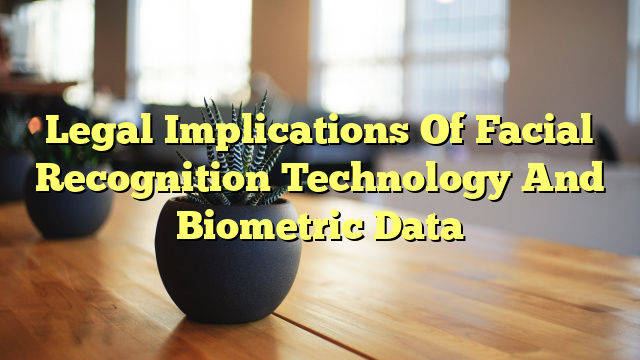Introduction
Facial recognition technology and biometric data have become more widespread in recent years as technology expands and companies become increasingly reliant on data from individuals. This technology has been used in a variety of contexts, from authenticating users of social media platforms to unlocking mobile phones and door locks. It has been used by law enforcement to identify potential suspects, and its use is becoming more prevalent in countries around the world. Although this technology has many potential benefits, it also raises a number of legal issues.
What Are the Legal Issues With Facial Recognition?
The legal implications of facial recognition technology stem from its potential to violate individual privacy and autonomy. As with other forms of biometric data, facial recognition technology relies on the capture and collection of an individual’s personal data, including their biometric traits. This data can be used to identify an individual without their knowledge or consent, which raises a number of privacy concerns.
The use of facial recognition technology can also have a chilling effect on an individual’s freedom of expression and other fundamental rights. The technology can be used to monitor an individual’s movements and activities, which may lead to self-censorship or other forms of restriction. In addition, the use of facial recognition technology raises the possibility of discrimination and bias, as the technology is not always accurate and may be more likely to misidentify certain individuals.
Why Should the United States Federal Government Ban the Collection of Personal Data Through Biometric Recognition Technology?
The United States federal government should ban the collection of personal data through biometric recognition technology in order to protect the privacy and autonomy of individuals. As mentioned above, the use of facial recognition technology poses a number of legal issues, including potential violations of privacy and autonomy. These issues can be addressed by banning the collection of personal data through biometric recognition technology. Such a ban would prevent companies and other entities from collecting and using an individual’s biometric data without their knowledge or consent.
In addition, a ban on the collection of personal data through biometric recognition technology would help to ensure that the technology is not used for discriminatory or biased purposes. By prohibiting the use of such technology, the federal government would ensure that individuals are not treated unfairly due to a potential misidentification.
Is Facial Recognition a Violation of Privacy?
Yes, facial recognition technology can be a violation of privacy. As mentioned above, the use of facial recognition technology relies on the collection of an individual’s personal data, including their biometric traits. The collection of such data without an individual’s knowledge or consent can be considered a violation of an individual’s privacy. In addition, the use of facial recognition technology can lead to a chilling effect on an individual’s freedom of expression and other fundamental rights.
How Does Facial Recognition Technology Affect the Rights of the Individual?
Facial recognition technology can have a number of impacts on the rights of the individual. As mentioned above, the use of facial recognition technology can lead to a chilling effect on an individual’s freedom of expression and other fundamental rights. In addition, the use of such technology can result in discrimination and bias, as the technology is not always accurate and may be more likely to misidentify certain individuals. Finally, the use of facial recognition technology can lead to a violation of an individual’s privacy, as the technology relies on the collection of an individual’s personal data without their knowledge or consent.

